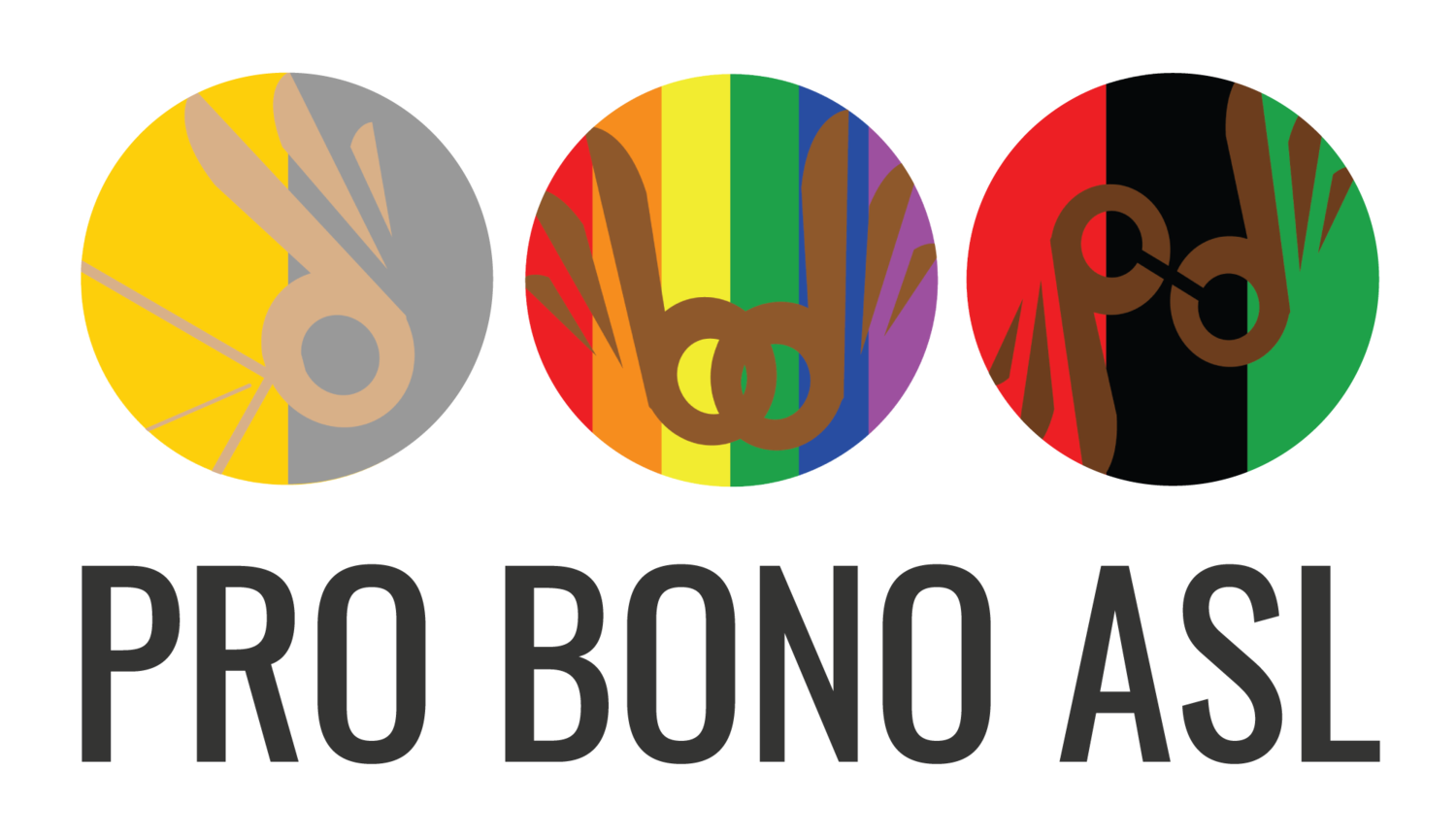FAQs
Why are Sign Language Interpreting Services required?
American Disability Act: Title III
The Americans with Disabilities Act (ADA) requires public and private services and employers to be accessible to all people, regardless of disability. When referring to people who are Deaf, DeafBlind, or Hard of Hearing, this means that communication must be accessible. The best way to ensure that equal access is provided is to have an ASL interpreter.
How many interpreters are necessary?
It depends on the length of time that services are needed and the types of services that are provided.
A good rule of thumb is that two (2) Interpreters are generally required for an assignment lasting longer than 45 minutes. However, two (2) Interpreters may be required for shorter assignments where the interpreting needs are more demanding.
Is there a minimum length of time required for an event to book interpreting services?
No. If access is needed, it should be provided regardless of the length of time, event, or setting.
How much notice is required to schedule an interpreter?
Typically, at least one week before the date of the event, if not earlier. However, if you have a last-minute request, we will try our best to staff interpreters for the event.
Do you provide video captioning?
No, we do not.
Why is captioning not sufficient enough access?
While captioning provides an accessible visual representation of English, ASL Interpreting services provide “interpretation” of English into ASL, which are two separate languages. It is the case that some Deaf/Hard of Hearing individuals use ASL as their primary mode of communication, thus rendering captions inefficient. In the same vein, you would not provide English written captions for a consumer requesting Spanish interpretation.
How do I submit a request for an Interpreter and what information do I need to provide?
Please follow this link Interpreting Requests then follow the prompts.
Are all of your services Pro Bono?
Yes, and no. In an attempt to reclaim our language and the term “Pro Bono” as it relates to the interpreting field, all of our services are done “for the good of the people.” This is the definition of the phrase “Pro Bono Publico”. We do offer our services at a reduced rate or no cost under certain circumstances, that are at our discretion.
Black and brown labor can no longer be wrested from us for free though, and our knowledge, cultural and linguistic expertise, and physical exertion are worth being financially recompensed.
What is the difference between “interpretation” and “translation”?
Translation typically refers to the written word, while interpretation typically refers to the spoken or signed utterance.
Can I request specific interpreters for an event?
Yes, you can!


